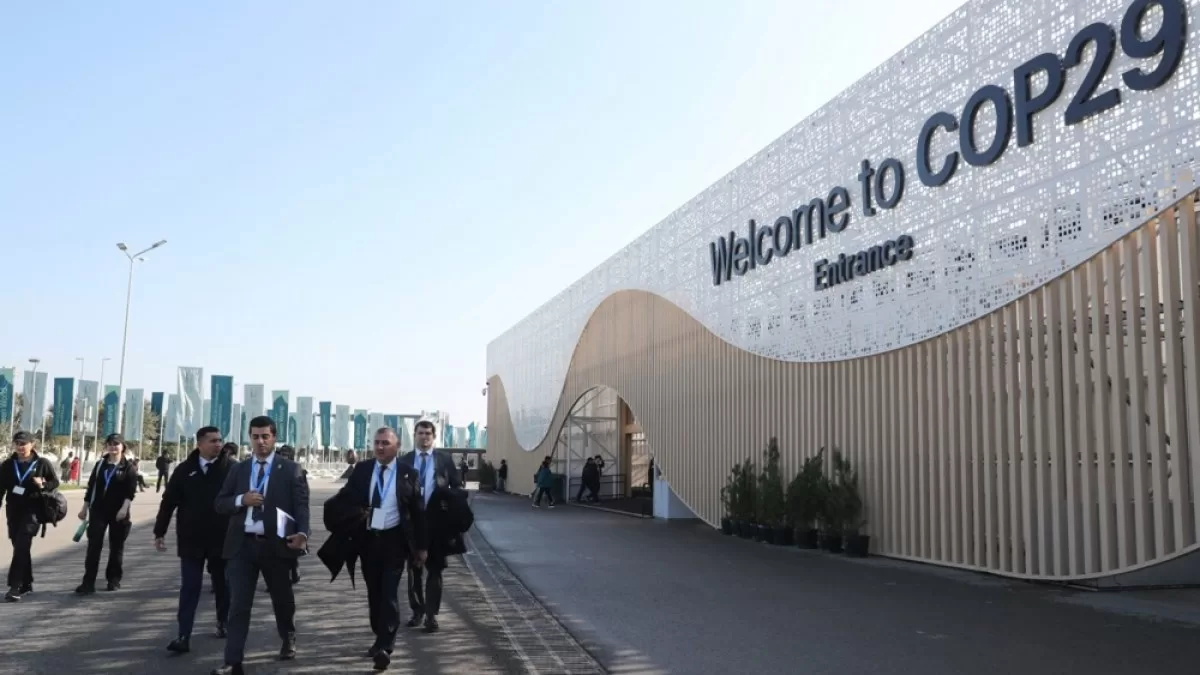One of the most salient decisions of last month’s climate summit in Baku was to create a new international carbon market, bringing nearly a decade of negotiations to a close. As leaders of two international human rights organisations, SOMO and Human Rights Watch, we’ve overseen in-depth investigations into major carbon projects implicated in human rights abuses, and we’re sounding the alarm on the risk that increased carbon trades may harm people further.
Carbon credits are supposed to stand for greenhouse gas emissions that were avoided, reduced or removed, for example through projects that prevent deforestation or plant trees. Governments, companies, and even individuals may purchase these credits to compensate for, or “offset,” their emissions. When purchases are made voluntarily, the sum of these commercial exchanges is called the “voluntary” carbon market.
For the past three years, a steady stream of investigations has exposed deceptive practices. High-profile projects have greatly exaggerated their climate benefits and defrauded investors. The evidence against offsetting has piled on so high that the Science-Based Targets Initiative, a United Nations-backed scheme that assists private companies in setting pollution reduction goals, ruled out offsetting as a valid method for meeting said goals.
The offsetting industry has fought back with a marketing campaign aiming to persuade customers and governments that its product is of “high integrity”. Methodologies to measure climate benefits have been revised to attempt to repair the credibility of the system. But there is a human rights-shaped hole in their efforts.
Indeed, our organisations’ research showed that carbon projects can badly harm the communities they claim to benefit, and the voluntary carbon market’s largest player has been unable to ensure redress or a remedy for victims.
In Kenya, SOMO and the Kenya Human Rights Commission reported in 2023 on widespread sexual harassment and abuse by senior male staff members and rangers at the Kasigau Corridor REDD+ Project, a 200,000-hectare (494,000-acre) nature conservation initiative affecting 360,000 people. The complaints dated back at least a decade. The project dismissed only one staff member involved in abuses, but denied the problem was widespread.
In Cambodia, a Human Rights Watch report released in 2024 detailed that several Chong Indigenous residents were forcibly evicted from their customary farmland and harassed by rangers for collecting forest products at the Southern Cardamom REDD+ Project, a nearly half-million-hectare (1.2-million-acre) forest protection project affecting 16,000 people. Officials involved in the project denied any wrongdoing.
Together, these projects have issued millions of carbon credits bought by high-profile companies including fashion brands, streaming platforms, and flagship airlines. While the projects’ finances are opaque, it’s at least clear they’ve both made millions of dollars in revenue.
Both the Kasigau and Southern Cardamom projects are certified by Verra, a nongovernmental standard-setting body in the voluntary carbon market. Verra was among those who celebrated the agreement reached at the COP29 climate summit, in the hopes that it will expand the reach of its already broad activities. Indeed, Verra is the largest standard-setter: it has authorised two of every three credits in the voluntary market. Verra’s certifications are supposed to guarantee that credits represent real climate benefits and that front-line communities are not being harmed.
Made aware of the serious human rights abuses our organisations uncovered, Verra suspended Kasigau and Southern Cardamom for several months, stymying their ability to issue new carbon credits during this period. Then Verra reinstated both projects, saying that they had taken “required actions to address all alleged harm” and “mitigate the risk of future harm.” We found, however, that the review was sorely lacking.
Verra conducted a desk-based “review” of the issues we raised, and the answers provided by the projects appear to have been accepted at face value. Verra did not visit the projects or speak to the women and men who claimed their lives were harmed by the Kasigau and Southern Cardamom projects.
In one case, an Indigenous resident described to HRW an encounter with a ranger patrol while he was collecting forest products, a lawful activity in Cambodia that does not violate Verra’s standards. “When they first rushed into the camp they hit me in the back with their gun,” he said. “They destroyed everything I had with me – even the clothes on my back. All I was left with was my underwear.”
Verra ordered the Southern Cardamom project to hold accountable rangers implicated in human rights abuses. But when the project responded that it had “not identified any staff misconduct,” there was no further interrogation despite the seriousness of the allegations.
While Verra ordered that the projects create safeguards and training programmes as a pre-condition for being reinstated, there was no on-site verification process before Verra lifted the suspension.
Further, Verra recently stated that it “cannot require project proponents to compensate for breaches of any safeguarding requirements” – so, for instance, Verra would not require projects to compensate Indigenous people who have been forcibly dispossessed of their land.
Verra, and other similar bodies, have set themselves up as guarantors of integrity on carbon offset projects. However, the processes at Kasigau and Southern Cardamom reveal a deeply flawed system. Instead of delivering accountability, human rights abuses are compounded by complaints review processes that ignore the community members reporting harm.
Among major industry players in the carbon market, Verra is positioning itself as a key actor that can guide the global expansion on the back of the COP29 agreement while driving “finance to vulnerable communities.” Yet, our experience shows that Verra’s practice is to leave human rights violations unaddressed, which has left affected communities even more vulnerable.
The views expressed in this article are the authors’ own and do not necessarily reflect Al Jazeera’s editorial stance.
